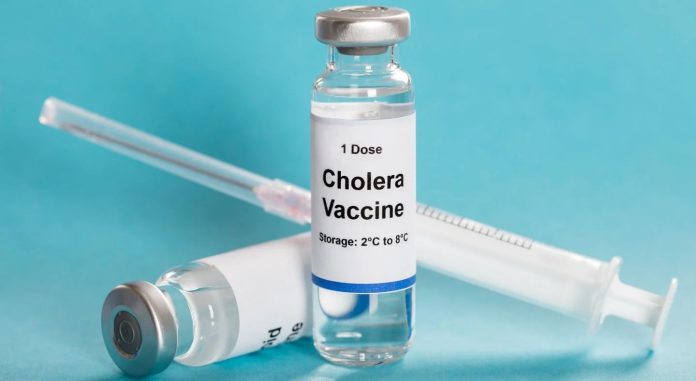A new oral vaccine for cholera, Euvichol-S has been prequalified by the World Health Organisation.
The organisation said the prequalification occurred last Friday, April 12, 2024.
The UN agency noted that the inactivated oral vaccine Euvichol-S has a similar efficacy to existing vaccines but a simplified formulation, allowing opportunities to rapidly increase production capacity.
·The development of Euvichol-S is a collaboration between EuBiologics, the International Vaccine Institute, and the Bill and Melinda Gates Foundation.
“The new vaccine is the third product of the same family of vaccines we have for cholera in our WHO prequalification list,” said the Director of the WHO Department for Regulation and Prequalification, Dr Rogerio Gaspar. “The new prequalification is hoped to enable a rapid increase in production and supply which many communities battling with cholera outbreaks urgently need.”
Cholera is an acute diarrhoeal disease caused by Vibrio cholerae; a gram negative rod-shaped bacterium. It is a potentially life-threatening, primarily waterborne disease.
In Nigeria, cholera is an endemic and seasonal disease, occurring annually mostly during the rainy season and more often in areas with poor sanitation.
There were 473,000 cholera cases reported to WHO in 2022 – double the number from 2021. A further increase of cases by 700,000 was estimated for 2023. Currently, 23 countries are reporting cholera outbreaks with the most severe impacts seen in Comoros, the Democratic Republic of the Congo, Ethiopia, Mozambique, Somalia, Zambia, and Zimbabwe.
“WHO prequalification list already includes Euvichol and Euvichol-Plus inactivated oral cholera vaccines produced by EuBiologicals Co., Ltd, Republic of South Korea, which also produces the new vaccine Euvichol-S.
“Vaccines provide the fastest intervention to prevent, limit, and control cholera outbreaks but supplies have been at the lowest point amidst countries facing dire shortcomings in other areas of cholera prevention and management such as safe water, hygiene and sanitation,” the global health body noted.


